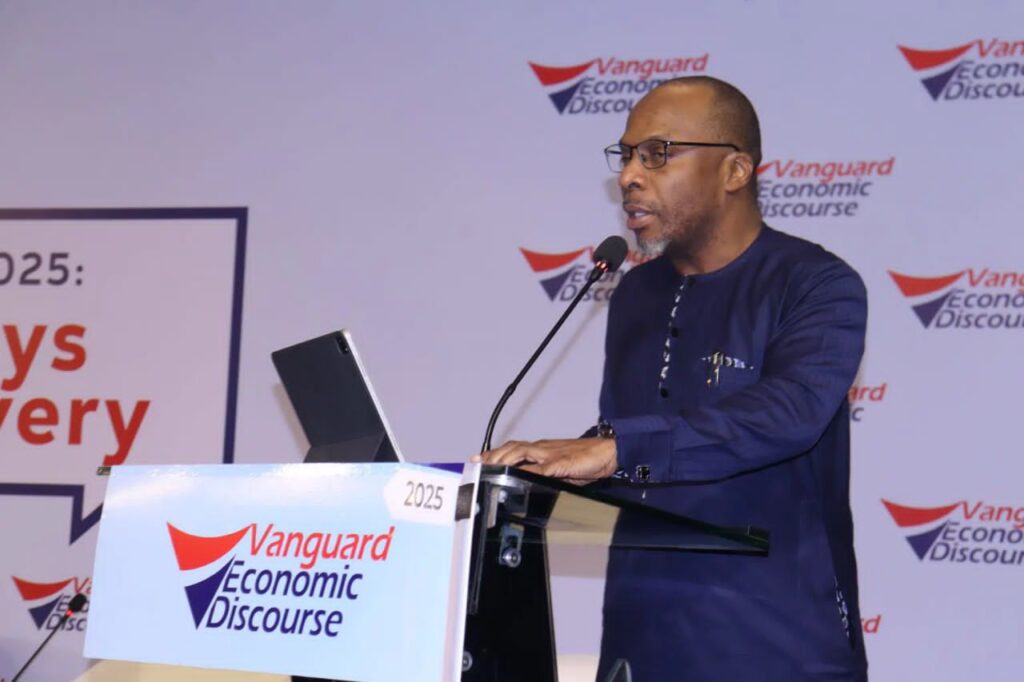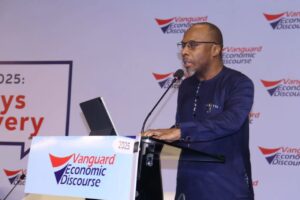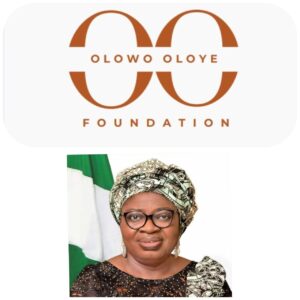Afreximbank Economist Attributes High African Borrowing Costs to Inaccurate Credit Ratings

Afreximbank Economist Attributes High African Borrowing Costs to Inaccurate Credit Ratings

Dr. Yemi Kale, Group Chief Economist and Managing Director of Research and Trade Intelligence at the African Export-Import Bank (Afreximbank), has attributed the high borrowing costs experienced by many African nations to flawed and biased international credit rating systems that do not accurately reflect the continent’s economic realities.
He made this remark on Wednesday during a Q&A session with journalists after the launch of Afreximbank’s flagship African Trade Report 2025, titled “African Trade in a Changing Global Financial Architecture,” held on the sidelines of the bank’s Annual Meetings in Abuja.
According to Kale, international credit rating agencies often apply models that do not reflect the economic structures and contexts of African countries, thereby inflating risk perceptions and ultimately driving up borrowing costs.
“When you increase the cost of funds for African banks to grow money, when African banks have to lend back to African countries, because you can’t lend more than what you borrowed, and it puts more pressure on African countries,” Kale said.
He argued that the solution lies in establishing a rating system that understands the nuances of African economies.
“We need an African-centred rating agency that develops indicators that make sense for African countries. Other regions like Asia already have theirs. We have to build ours to reflect our realities,” he stated.
Kale acknowledged that such a system may initially face resistance from the global financial community, but expressed confidence that credibility and acceptance would come with time.
“Initially, they’ll push back, of course, but as more African countries adopt and use them, the international community will have no choice but to accept them, just like the current rating agencies were eventually accepted,” he said.
The economist further noted that alternative funding options, including sourcing capital from China and friendly nations, could help African countries reduce reliance on the Eurobond market, where borrowing costs are often inflated by poor ratings.
He also highlighted the need for African countries to strengthen domestic financial institutions and increase capital contributions to African multilateral banks, thereby building internal capacity for self-financing.
“I think there are many ways to handle this. For example, we don’t have to borrow from Euromarket, for example, we have a good relationship with China. With China, for example.
There are ways, I think you remember we said we can grow some of the funds from China.
“So, all you have to do is, you look at the Euromarket, if Euromarket is saying that we’re high risk, and the rates go too high, then we look at other alternative markets where we can pull resources. There are different ways of making capital. Not just by going directly to the market, there are different ways of making capital.
“We can go back to African countries as well to increase their shareholding, their effectiveness. I do not believe it’s going to be a big challenge, but I don’t think we’re going to have the same impact on our exercise operations. Yes, it could be a spin, but no, not going to be a big deal. We have a good, different alternative financing available in the market,” Kale said.
Despite these challenges, Kale maintained that Africa has remained largely resilient amid global economic volatility and expects growth to improve slightly in 2025.
“We’re not deeply integrated into the global financial system, and what was once seen as a weakness has now become our strength,” Dr. Kale said, noting that trade wars and geopolitical tensions are having minimal direct impact on Africa.
He also emphasized a central message of the African Trade Report 2025—that intra-African trade is on the rise and should be further promoted as a buffer against external economic shocks.
Using Nigeria as an example, Kale highlighted that, for the first time, the country recorded higher trade volumes with other African nations than with any other region.
The African Trade Report 2025 analyzes macroeconomic trends and policy responses across Africa and provides strategic recommendations for policymakers and businesses to navigate the challenges of a rapidly shifting global environment.






